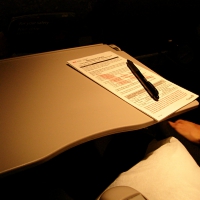

Japan Visas (Japan Immigration)
Japan Visas (Japan Immigration)
Japan has about thirty types of statuses of residence (corresponding to visas)
for foreigners who wish to stay in Japan for work, study, or other purposes.
Various factors must be considered when filing an application with Japan’s
immigration office, such as the size of the corporation, the required
qualifications for each applicant, and the working conditions. If you provide us
with the necessary information, we would be happy to offer a quick, free estimate
on your visa application.
TYPES OF VISA
Manager/Executive Visa: For highly skilled professionals who operate or
manage a business as a president, board director, manager, etc.
Engineer, Specialist in Humanities, and International Visa: For highly skilled
professionals engaged in services that require knowledge in natural sciences or
humanities. This includes engineers in mechanical engineering and marketing
specialists.
Skilled Labor Visa: For professionals engaged in specialized fields requiring
specific skills, such as foreign cuisine chefs or sports instructors.
Intra-Company Transferee Visa: For highly skilled professionals who have
been transferred to a business office in Japan for a limited period to engage in
services requiring knowledge in natural sciences or humanities.
In some cases, foreign nationals may be transferred to a so-called "Representative
Office" of a foreign company under the status of Intra-Company Transferee without the need to establish a formal company in Japan. Such representative offices are typically allowed to engage in the following activities:
1. Providing information to the parent company
2. Advertising and promoting the company’s products
3. Conducting market research and purchasing assets for the parent company
However, a representative office is not permitted to engage in profit-making activities inJapan.
Types of Applications
1. Application for Certificate of Eligibility
The Immigration Control and Refugee Recognition Act stipulates that when a foreigner intends to enter Japan with a status of residence other than “Temporary Visitor,” the Minister of Justice shall examine beforehand whether the applicant meets the conditions for landing related to that status. If the relevant requirements are met, the Minister can issue a Certificate of Eligibility (C.E.).
The purpose of the Certificate of Eligibility system is to simplify and expedite
immigration inspection procedures, making them more efficient.
A Certificate of Eligibility is issued when it has been determined that the foreigner’s
intended activities correspond to the designated status of residence and meet the
landing criteria.
If a foreigner presents a Certificate of Eligibility at a Japanese consulate when applying for a visa, the application process can be expedited since the Minister of Justice has already conducted a prior examination regarding the conditions for landing. This allows visa issuance inspections to be completed more quickly.
2. Application for Change of Status of Residence
When a foreign national wishes to change their current status of residence, they must submit an application for permission to change their status at the regional immigration office before their current status expires.
Applicants must complete the required application forms, prepare the necessary
supporting documents, and submit them at the service counter of the regional
immigration office.
3. Application for Extension of Period of Stay
A foreign national who wishes to continue their activities in Japan under their current status of residence must submit an application for permission to extend their stay before their current status expires.
Applicants must complete the required application forms, prepare the necessary
supporting documents, and submit them at the service counter of the regional
immigration office.
Photo Requirements (4cm × 3cm)
If an applicant is not a mid- to long-term resident and wishes to extend their period of stay, a photo is not required. Additionally, applicants under the age of 16 do not need to submit a photo.
The photo must meet the following criteria:
The applicant must be pictured alone.
The applicant must face directly forward and remove any hats, caps, or head
coverings.
The background must be plain with no shadows.
The photo must be sharp and clear.
The photo must have been taken within three months prior to submission.
Cross-Boarder Inheritance Administration
We offer legal advice and services, including but not limited to translating wills,
contacting beneficiaries, and conducting investigations—whether the beneficiaries
reside in the U.S. or the testator or executor is based in the U.S.
With our extensive network of lawyers and accountants overseas, we provide cost-
effective and practical support for inheritance matters.
If a foreign individual is searching for heirs in Japan, we can assist with such cases.

VISA for the entry of the US
VISA for the entry of the US
E-1/E-2 Visa
i. Overview of E-1/E-2 Visas
A citizen of a foreign country who wishes to enter the United States must first
obtain a visa—either a nonimmigrant visa for a temporary stay or an immigrant
visa for permanent residence.
Treaty Trader (E-1) and Treaty Investor (E-2) visas are available to citizens of
countries that have treaties of commerce and navigation with the United States.
For a list of eligible countries, please refer to Treaty Countries.
To qualify for an E-1 or E-2 visa, you must be coming to the United States to:
Engage in substantial trade, including trade in services or technology, in
qualifying activities, principally between the United States and the treaty
country; or
Develop and direct the operations of an enterprise in which you have
invested a substantial amount of capital.
ii. E-1 Visa Requirements
To qualify for an E-1 visa, you must meet the following criteria:
You must be a citizen of a treaty country.
The trading firm you are joining in the United States must have the
nationality of the treaty country, meaning that at least 50% of the
enterprise must be owned by persons with the treaty country’s nationality.
The international trade must be substantial, meaning that there is a
sizable and continuous volume of trade.
More than 50% of the international trade involved must be between the
United States and the treaty country.
Trade refers to the international exchange of goods, services, and
technology, where ownership (title) of trade items must pass from one
party to another.
You must be an essential employee, working in a supervisory or executive
capacity, or possess highly specialized skills essential to the efficient
operation of the firm. Ordinary skilled or unskilled workers do not qualify.
iii. E-2 Visa Requirements
To qualify for an E-2 visa, you must meet the following criteria:
The investor (either an individual, partnership, or corporate entity) must
be a citizen of a treaty country.
If the applicant is a business, at least 50% of the business must be owned
by persons with the treaty country’s nationality.
The investment must be substantial, meaning that the funds or assets
must be committed and irrevocable, and sufficient to ensure the
successful operation of the enterprise.
The investment must be in a real, operating enterprise engaged in active
commercial or entrepreneurial activities. A paper organization,
speculative, or idle investment does not qualify. Funds held in a bank
account or similar security are not considered an investment.
The investment must either generate significantly more income than just
for the investor and their family or have a significant economic impact in
the United States.
The investor must have control of the funds, and the investment must be
at risk in a commercial sense. Loans secured with the assets of the
investment enterprise are not allowed.
You must be coming to the United States to develop and direct the
enterprise.
If you are not the principal investor, you must be an essential employee,
working in a supervisory, executive, or highly specialized skill capacity.
Ordinary skilled and unskilled workers do not qualify.
iv. B-Visa (Visitor Visa)
Generally, a citizen of a foreign country who wishes to enter the United States
must first obtain a visa—either a nonimmigrant visa for a temporary stay or an
immigrant visa for permanent residence.
Visitor visas are nonimmigrant visas issued to individuals who want to enter the
United States temporarily for:
Business (B-1 visa) – for individuals participating in business activities.
Tourism, pleasure, or visiting (B-2 visa) – for leisure or personal visits.
A combination of both purposes (B-1/B-2 visa).
These visas are intended for individuals engaging in business or leisure
activities in the United States.
Japanese Corporations run by Foreigners
Managing and operating a corporation in Japan requires familiarity with various
Japanese laws and regulations, including those related to contracts, corporate
governance, labor, immigration, insurance, and taxation. Navigating these legal
requirements can be challenging even for Japanese nationals.
To assist foreign professionals in corporate managerial positions in Japan, we provide
cost-effective and practical legal services in English. Additionally, if clients require
support with litigation, tax returns, or social insurance matters, we can connect
them with experts in these fields.
PrevNext
Clients, trading companies, English Schools, Dance Schools, restaurants etc…
International Business Transactions
We provide companies in Japan with a range of legal services related to international
business, including but not limited to:
Drafting and reviewing business contracts in English
Business negotiations
Litigation against foreign entities
If you are interested in our services and would like an approximate cost estimate,
please feel free to contact us.
Client Examples:
Domestic manufacturers
Dealership stores
International franchise agents
Foreign-affiliated corporations
Foreign investment companies

 Japanese
Japanese








